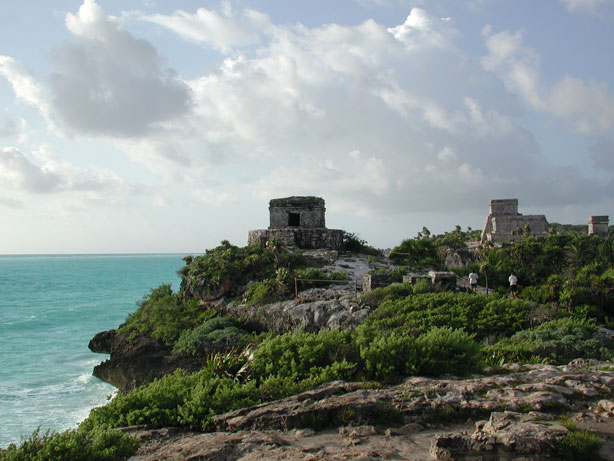Tulúm, Quintana Roo, México
24 December 2001Between San Cristóbal and Tulúm is a long, empty road. The overnight bus works beautifully for this trip, winding its way through the mountains, jungle and the vast plains of the Yucatán. The only major stop along the way is Escarcega, Campeche. By major, I mean a couple of comida corrida places, a papaya tree, and a dusty bus stop on a long, empty stretch of highway. By six in the morning, we were in Tulúm, a slightly bigger collection of restaurants and bus stops along a long, empty stretch of highway. We grabbed a plate of huevos motuleños and some coffee, which (I swear that I am not making this up) was blue. Sort of an off-grey blue. It tasted like milk mixed with dishwater.

The best time to see the ruins is, without a doubt, sunrise. The ruins at Tulúm, while not spectacular except for the two-metre rock wall surrounding the site on three sides, have one of the best views you could possibly hope for. The structures sit nestled amid the rolling green grass and white sandy beaches, hovering over the turquoise Caribbean. As the sun rises, the whole place is bathed in a warm orangey-red glow. Sitting on ruins watching the waves is pretty relaxing.
Since Tulúm is so close to Playa del Carmen and Cancún, the number of visitors is absoutely huge compared to a lot of other Mayan ruins, and especially given the small size of these ruins. Because of that, most of the structures are off-limits to the public, so you can’t climb up on them as you can at most other sites. In the end, it’s nice to see that these ruins are being protected, but Palenque, Uxmal and Chichen Itzá are a lot more fun. That said, if you look hard enough, you will find a couple structures you can sit down on.